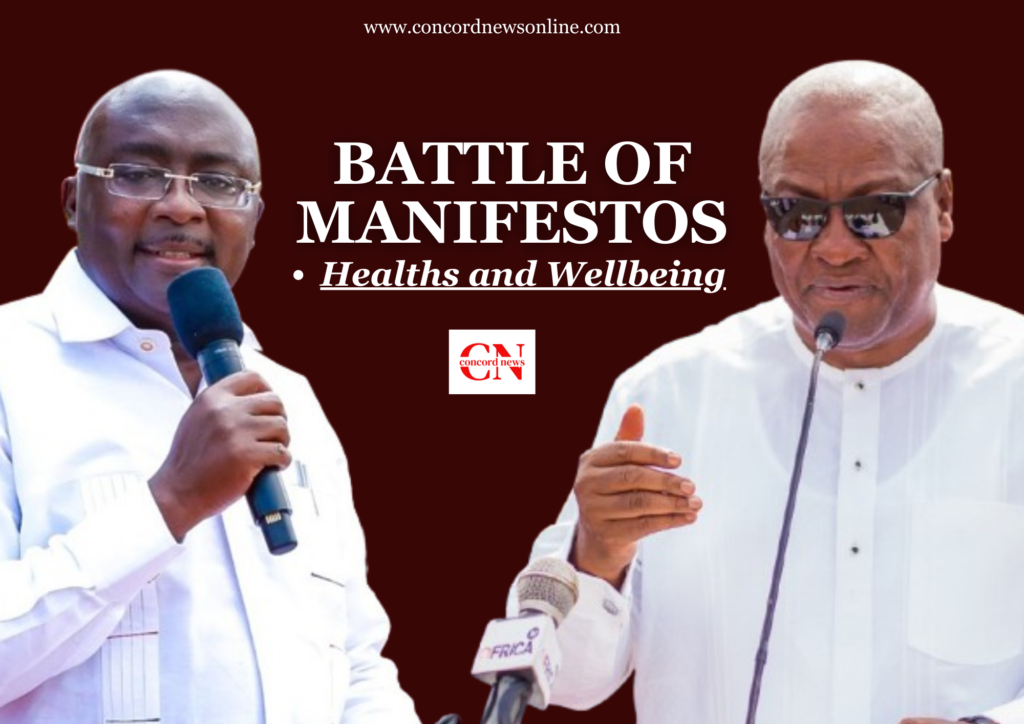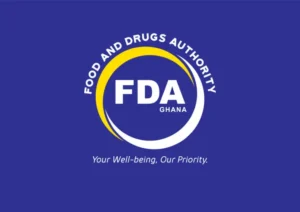
In the final of our three-part series on the manifestos of the two leading parties, the NPP and the NDC, Political Editor, KOBBY DEAN looks at the vision of the two parties in the area of HEALTH.
The NPP Manifesto touts some achievements in the delivery of health infrastructure and the much-touted Agenda 111 is high on the party’s vision with the promise to deliver all the 111 hospitals if elected into office.
The Party’s manifesto also highlights the importance of Public Private Partnerships in healthcare delivery as a critical strategy for retooling hospitals with critical equipment for treatment and disease diagnosis. Another critical manifesto promise is the commitment to conclude the Tissue and Organ Donation, Storage, and Transplantation Policy, and pass a law to regulate the service.
Medical tourism is also a focus of the NPP’s manifesto as the party expresses a commitment “to develop a policy to make Ghana a strategic Medical tourism hub in the region, through Public Private Partnerships (PPPs) where appropriate”.
The NPP articulates a general strategic vision that emphasizes boosting the human resource capacity of the Health Ministry with the recruitment of nurses, doctors and other health workers. Additionally, the Party’s expresses a commitment to improve housing for health workers through partnership with estate developers including the State Housing Corporation and the Tema Development Authority (TDC).
Also, the Party’s promises to introduce a scheme for healthcare workers to buy one vehicle each, with engine capacity of up to 1,800 cubic centimetres (cc).
Pharmaceutical production receives special emphasis in the manifesto of the with the commitment to scale up the production of pharmaceuticals in the country with the establishment of a Pharmaceutical Industrial Park as part of a plan to make the country a Regional hub for pharmaceutical production.
Similarly, the NPP seeks to adequately resource the National Vaccine Institute and boost the production of local vaccines in the bid to make Ghana a Regional hub for the production of vaccines.
The NDC provides a very comprehensive scope of proposed health interventions and policies it seeks to introduce if elected into power. The Party outlines policies that encompass disease prevention through strategic operational activities such as public education, research and environment safety activities. Additionally, the NDC outlines a vision to boost mental health wellbeing through interventions such as the review and integration of mental health into primary health care. The promise to build a new mental health facility in the Northern sector and refurbish existing mental health facilities is perhaps, a promise that is long overdue.
The NDC also presents a quite bold intention that seeks to integrate herbal medicine into the country’s health care system and mainstream research-backed herbal, traditional, and alternative medicine and practice in patient management at the district hospitals. That certainly will present a strong incentive for the study of Herbal Medicine in tertiary institutions in the country.
A contentious issue in healthcare management in the country is the alarming rate at which healthcare professionals leave the country and the NDC has expressed a commitment to pursue a policy of ethical migration through a health-worker migration framework that seeks to promote ethical migration policy, promote knowledge exchange and regulate the impact of brain drain on our health system.
On the contentious issue of allowances to trainee nurses, the NDC has clearly revised its position with a promise to maintain the payment of allowances while introducing additional payment schemes such as Student Loans.
Another important commitment is the plan to establish a Ghana Medical Care Trust Fund to support the cost of care for persons with chronic diseases such as kidney failure (dialysis), cancers, and heart diseases.
The ‘no bed syndrome’ in major public hospitals receives some focus in the NDC manifesto with a commitment to establish a Central Bed and Emergencies Management Bureaus in all three geographical belts (Southern, Middle, and Northern) to respond to health emergency needs and address referral challenges including the ‘no bed syndrome’.
The NDC like the NPP also outlines measures that seeks to help make Ghana a hub for pharmaceutical production in Africa. There is mention of policies that focus of improving support for local pharmaceutical companies in the areas of the production of medicines and vaccines. Additionally, the party seeks to position the country as a hub for medical tourism.
The NDC’s precise and bold promises in the provision of health infrastructure include the establishment of a medical school in the Bono Region and operationalization of the Sunyani Regional Hospital as a teaching site, commence the building of a specialist and trauma hospital in the Oti Region, expand the Ho Teaching Hospital into a specialist hospital, establish a modern dialysis center in the Northern sector, upgrade the Greater Accra Regional Hospital (Ridge Hospital) into a full Teaching Hospital and link it to the College of Physicians and Surgeons for specialist training, commence plans towards the rebuilding of Korle Bu Teaching Hospital as an additional ultra-modern quaternary specialist hospital to reduce medical care and training abroad, and refurbish the Komfo Anokye Teaching Hospital to meet the standards of an ultra-modern Teaching Hospital.
Additionally, the NDC outlines policies and interventions that focus on Gender and Disability Inclusion, Child Protection, and Social Protection.
These include:
- launch of a “Women in Agriculture” initiative to promote young women’s participation in agriculture by expanding access to land in agricultural zones, along with financial and business support;
- mandate a minimum of 5 percent hiring of persons living with disabilities in public and private sector
- increase in the percentage of the District Assemblies Common Fund (DACF) reserved for Persons with Disability, and establishment of Disability Fund in the districts.








